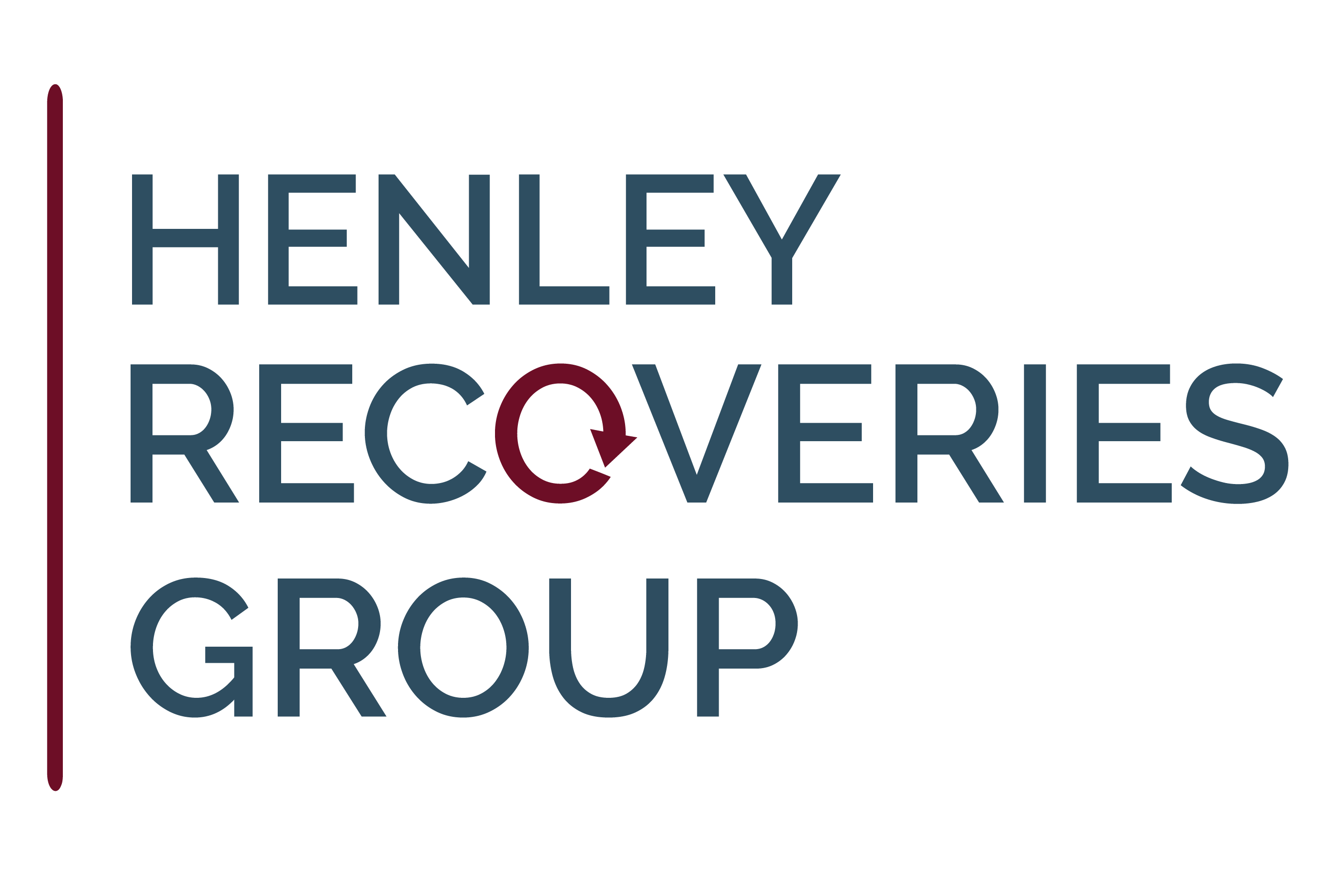
Why Should You Recover Funds through a Collection Agency?
Every business owner knows how essential cash flow management and time management are. To successfully manage the operations and finance of running a business is a challenging task, especially during periods of economic instability. A debt recovery agency is one of the essential services that your business needs to have on call – and this is why:
Your time as a business owner is valuable
Business owners, especially those of a small to medium-sized business are generally pretty busy people. As a business owner, you are responsible for overseeing everything that your company does – from accounts, to marketing and staff management, let alone the products and services that your business actually provides.
Put simply: as a business owner, you should not be spending your valuable time chasing overdue invoices. It can be a rabbit-hole of constant following-up, waiting for replies, filtering through excuses and negotiating. By the time you have collected an overdue account, your time (if we were to translate it to currency) would probably outweigh the debt. There are some things that only a small business owner can handle – and your time is better spent on that than collecting accounts.
Hiring a collection agency is risk-free
Collection agencies like ours – that operate on a no-win, no-fee basis – mean that you do not have to make any upfront payments to commence collection activity. Basically, if the debt isn’t collected, then you don’t pay anything. If the funds are recovered, the commission is taken from that amount and the remainder is paid into your dedicated account. If you think about it, the debt hasn’t been paid yet and isn’t going to be paid if you don’t at least try to collect it.
Perception and authority go a long way
When a debtor is contacted by a collection agency, it shows a natural process of escalation. If a client isn’t paying you prior to being contacted by a collection agency, then they probably won’t at all. The fact that collection agencies have partnerships with credit bureaus and they can affect your credit score, often prompts conversations with debtors. Utilising debt recovery services shows that as a business and a brand, you take non-payments seriously – improving your reputation and even preventing further non-payments in the future.
Debt recovery agents are skilled at their job
It sounds obvious, but debt collectors are professionals in their field. It means that they are skilled in dealing with people, weeding out dishonest excuses for non-payments, opening up conversations and much more. Plus, detailed notes and records of conversations are kept, meaning that persistent or changing excuses do not go unnoticed. Professional recovery agents also know the relevant laws and legislations around collecting overdue accounts, saving you time on researching and trying to develop strategies.
Preserve client relationships
It may seem counterintuitive, but by passing on a debt to a recovery agency can actually help you to maintain positive client relationships. Let someone else handle the difficult client conversations for you. If debt recovery is built into your everyday accounting practices, then it becomes a standard process. Debt recovery agencies like Henley Recoveries aim to seek amicable recovery solutions for our clients wherever possible, as we understand the importance of these client relationships. In fact, you can even request that a recovery agency act as an extension of your accounts receivable department!
There are many more ways that a debt recovery agency can help your business to become even more effective. Streamline your accounting processes and refer overdue invoices to recovery professionals for amicable debt collection. Your time and resources as a business owner are far more valuable doing what only you can do – running your business, than they are chasing overdue payments.
Henley Recoveries Group specialise in cash flow management, accounts receivable and debt recovery. For amicable debt recovery and to improve your cash flow, submit a debt for collection with no upfront costs, and a no-win no-fee structure. You can also book in a consult with one of our debt recovery specialists to discuss all of the options available to our clients.

7 Cash Flow Management Tips for Small Businesses
Cash flow can make or break a small business. Successfully managing incoming and outgoing expenses is more crucial than ever this year. If cash flow is poor, opportunities are limited, business growth is stunted and running a business is definitely more stressful. However, positive cash flow means that you can invest in resources that will help your business to grow and prevent times where cash flow is down.
Here’s our top 7 tips for promoting positive cash flow within your business.
1. Send Your Invoices Out – Quickly
It makes sense: the sooner you send an invoice out, the sooner you can get paid. Getting invoices to clients promptly ensures that your services are fresh in their minds and gives them time to make payment. Set aside time in your schedule regularly to send, follow up and reconcile invoices.
2. Create an Accounts Receivable Timeline
Having a strict accounts receivable process (and sticking to it) means that you can stay on top of amounts that you are owed. Make sure that you define this process and have strict timeframes put in place.
For example, as soon as an invoice becomes overdue, send a reminder to your clients. In that reminder, request payment within the next 7 days. If you still don’t hear back from them after one week, give them a call. Should they still not make payment or get in touch with you, send the invoice to a debt collector – the sooner you refer the debt to a collector, the more likely the amounts are to be recovered.
You can find more information on following up unpaid invoices in our last blog post. Or contact us at info@henleyrecoveries.com.au if you’d like more information about our accounts receivable services.
3. Review Your Options for Payment
The more methods that you make available to your clients for payment, the most opportunities you have to get paid. Consider investing into different types of payment options, including EFTPOS/card payments, BPAY and direct debits, as well as ‘buy now pay later’ options, such as AfterPay and ZipPay.
4. Future-Proof Your Cash Flow
All businesses have ebbs and flows – it’s never static. During a positive cashflow period ensure that you’re investing into resources to protect your cash flow during tough times. For example, you could invest into marketing to ensure that you retain a steady stream of sales. You could even invest in new products, or training staff in different areas to expand your product and service offering.
5. Consult a Finance Professional
Engaging the services of a financial advisor doesn’t have to happen when your business isn’t doing well. When consulting a professional, they can help you to review your current processes, create a plan and put measures in place to prevent future losses. The Australian Government has details and recommendations on financial counsellors on the MoneySmart website.
6. Review Your Credit Terms
Providing credit to customers isn’t a bad thing. However, it can go downhill quickly if you don’t have strict terms that you provide that credit under. Ensure that your terms of trade, or client engagement contracts have clauses that protect you from incurring costs when collecting and following up on unpaid invoices.
7. Perform Credit Checks
Prior to engaging into a sizeable contract with a client, ensure you perform a credit check to see if there are any mercantile enquiries, payment defaults and other late or missed payments lodged against them. This allows you to ensure you aren’t engaging with clients who have a record of avoiding payments. You can request a credit check from Henley Recoveries Group by emailing us.
No matter the size of your business, cash flow management is important. By building out an accounting regime and planning for the future, you are preventing losses during months where cash flow is limited. Ensure that you are investing during the good times, so that you can mitigate the impacts of the unknowns and unavoidable situations.
Henley Recoveries Group specialises in cash flow management. Book a consultation with one of our senior consultants for personalised information and advice on your accounts receivable and overdue invoices. You can also Submit a Debt for collection, or call us on 0466 243 114.

Debt Collection: Legal Escalations and Difficult Debts
There is a natural escalation process in debt collection. If a debtor remains unresponsive, or is unwilling to negotiate with collection activity, then your case officer may suggest escalating the debt to our legal process. That process has many different variants and includes cost-effective solutions to aid in collecting money that is owed to you.
Registering the Debt with a Credit Bureau
At Henley Recoveries Group, we are partnered with a major credit bureau. They provide information to many different entities, including major banks, utility companies and other financial institutions. Before working with a new client, many businesses perform what is called a ‘credit check’ as a standard procedure. This means that they look at the data provided to credit bureaus and ensure there are no red flags, or debts recorded with them.
If a debtor remains unresponsive and unwilling to discuss the matter at hand, a strong option is to register that debt with our credit bureau. This means that the debt owing to you can be entered against the debtor’s credit file and may prevent them from receiving loans, credit and other services that perform credit checks prior to engaging in service. It also prevents the debtor from doing the same thing to other vendors. Registration of the debt is affordable and able to be effective on both small and large debts.
Lodging a Claim with the Small Claims Tribunal
In Australia, each state has a tribunal body that hears cases to do with small claims. Each tribunal has different rules and regulations, but they all hear civil disputes and debt cases. The greatest benefit for taking a debtor to small claims court is that you will receive an enforceable, concrete judgement on the debt. This means that the judge will make a call on how much is owed and to whom.
If negotiations and communications are not working, a lodgement with the tribunal is the option we most highly recommend. If the debtor remains unresponsive, we can even request a default judgement to be ruled in your favour. A bonus positive is that a majority of the fees you will pay to submit your case to the tribunal can be requested back in the claim that you make! We can even make the tribunal submission on your behalf.
Send Out a Licensed Field Agent
You may have read our previous blog on Field Agents. Sending out a field agent can be a great way to communicate with a debtor. Agents are fully licensed and regulated, adhering to strict rules and debt collection guidelines. Field Agents are a great option if you have limited contact information for your debtor. Sending a field agent out allows you to establish an authoritative presence, as well as confirm the address of the debtor prior to making a lodgement with the small claims tribunal. Field agents can even have the debtor physically sign a payment agreement.
Dispute Resolution Services
More often than not, we act as mediators between debtors and our clients. We help our clients to negotiate, correspond and come to an agreement with their debtors, ensuring they recoup as much of the funds that they are owed as possible. A lot of industries actually have external dispute resolution bodies that the small claims courts require their dispute resolution services to be utilised prior to being heard at the tribunal. It is important to ensure that these avenues are properly utilised prior to other actions being taken, this ensures that your case is strong and won’t be thrown out should you choose to lodge with the tribunal.
Lodge Your Case Through the Court System
Lodging your case through the court system, outside of the small claims tribunal, is another option available to our clients. This option is costly, but again provides a concrete and enforceable judgement on the debt. Generally, this option is for larger debts (usually over $25, 000) that the small claims tribunal won’t hear. Lodging through the courts, whether that be the magistrates, district or supreme court, also allows you to have representation in the form of a lawyer, where the small claims tribunals are usually always self-represented.
No matter what the situation of the debt is, there are always options for recouping monies owed to you. The options above are just some of the escalation points that can be pursued for debts of all budgets. By utilising the natural escalation process, you can take back control of debts owed to you.
Henley Recoveries Group has a specialised escalation process. We are experienced in industry-specific procedures and in writing and submitting claims. Contact us today on 0466 243 114 for more information on our Debt Recovery Services and escalation processes.

Credit Bureaus, Credit Scores & Debt: How they work together
Credit Bureaus can seem like a rabbit hole when you start looking into them. These bodies have a significant place in the world of finance, lending and debt recovery in Australia; how they work together with other services is essential for business owners to understand.
What are Credit Bureaus?
Credit Bureaus are agencies that hold financial information about both individuals and companies. They collect information about credit ratings and supply this information to credit providers. They calculate the information provided to them and give a numerical score between 0 and 1, 200. The higher the number, the ‘safer’ that entity is to lend to.
How is a Credit Score Calculated?
When a credit reporting agency calculates a credit score on an entity, to give to a credit provider, there are a few different things that go into calculating that report. For example, a few different things that can be reported on include:
- The number of applications that the entity has made for credit
- Whether they have paid credit providers on time
- The amount of money the entity has borrowed
- Negative information provided from providers such as infringements, bankruptcies and defaults
There are a number of other factors that can also go into formulating a credit score, such as age, location, length of employment and the age of your credit history.
Where do Credit Bureaus Get Information From?
Credit Bureaus mainly get their information from creditors. This can include banks, finance companies, credit card issuers and telecommunications companies. They can also access information about entities from public records that can include business records, court records and property ownership information. Each bureau may hold different information and have varying sources that they gather that from.
Who do They Give Information To?
Access to information regarding your credit score is sensitive and credit bureaus take privacy very seriously. Because of this, only certain classifications of entities can view a credit report. Firstly, the individual or business that the credit report is about can request a copy. Other viewers that can apply include:
- Lenders you are seeking, or have sought credit from
- Debt Collection Agencies
- Utility and telecommunication companies
- Employers in certain circumstances
- Government agencies
- Insurance companies
- Real Estate companies and/or landlords
How Do Credit Bureaus and Debt Collection Work Together?
Occasionally, being contacted by a debt collector is not enough to prompt a debtor to make payment. An important part of our process is being in contact with credit bureaus. We can both provide them with information regarding a debtor, or they can provide us with information about someone who is seeking credit from one of our clients.
Can Credit Bureaus Help the Debt Collection process?
We have a partnership with a credit bureau that allows us to leave a negative footprint on a debtors account. These negative footprints can help the natural debt collection process, by providing incentive for payment. We can place either mercantile enquiries or at times payment defaults onto a business’s credit file. These remain on an account to be available for viewing, as well as being taken into consideration during calculations that form a credit score.
We have access to different credit bureaus that are associated with major Australian banks, finance providers and utility companies. At Henley Recoveries Group, we have the capacity to view credit reports that will denote how risky a potential client may be to provide service to prior to payment. This is a service we provide to our clients, alongside placing these footprints on debtor accounts, if they are unresponsive or unwilling to make payment. Credit bureaus work hand-in-hand with the debt collection process to provide an incentive for payment and act as a consequence for a non-payment.
If you have any questions regarding credit bureaus, credit reports and payment defaults, please get in touch with our team at info@henleyrecoveriesgroup.com.au, or view our services here.

The Benefits of Using a Field Agent for Debt Collection
There are many methods that professional collection staff use when chasing unpaid invoices, including the utilising a Field Agent. Most agencies have their individual processes and approaches. For agencies that don’t use field agents, their options for collection can become exhausted quite quickly.
Without starting legal proceedings, the end of the line is usually when a debtor fails to respond to letters, calls, text messages and emails. However, if field agents are available, they are a valuable resource and can provide many benefits when it comes to collecting a debt.
What is a Field Agent?
Field agents are debt collectors that hold a special license and are qualified to make visits to a debtor’s home or place of employment. Generally, field calls are used as a last resort when the party owing money has failed to make contact after various reasonable attempts have been made. These agents are trained and professional in their visits and must adhere to strict home or workplace visitation guidelines.

Field Agents are More Cost-Effective than Legal Action
Pursuing a judicial recovery may seem beneficial and even appear as if you are saving time, by skipping a step in an otherwise lengthy process. However, legal action is often expensive and has the potential to overtake the cost of many minor debts. It is also very unlikely that legal costs will be recovered after a ruling. Often to recover the costs of legal action, a debt would need to be processed through a non-tribunal body, such as the magistrates court. This is why attempting to recover the amounts with a field agent is a more effective step.
A Field Agent Will be Able to Confirm the Location of a Debtor
If legal action is to be considered in the future, should the debt remain unpaid, then knowing either the home or work address of a debtor is essential. This allows for court papers to be served, following the strict legal process. It also aids proof that the person owing money has ignored any physical mail that has been sent to them regarding the outstanding amounts.
Sending a Field Agent Demonstrates Perseverance in Collecting the Debt
By sending a physical agent to the debtor’s home or work, you are sending a statement that you are serious about collection upon the amount they owe you. It also conveys that the debt collection demand is legitimate and increases the likelihood of you recovering the amount owed. Field visits can even be made after business hours and still be within the guidelines set by the ACCC. This means that you are more likely to make contact with the debtor and can attempt contact at hours one would generally be home.

It Allows For ‘On the Spot’ Payments
Generally field agents will have the capacity to take payment for debts on the spot. This means that you can guarantee the debt has been paid and will even potentially receive the funds in a timelier manner. If the debtor is able to pay the full amount in person, they are far more likely to pay on the spot, or enter into and sign the terms of a payment arrangement.
You Can Drive the Field Agent’s Process
A field agent will never be sent to a debtor’s home or workplace without consultation from you. Your case officer would be in contact with you, to explain the process and be guided by your instruction. You will be able to convey any hesitations you have and can even look at a client-centred focus, to mitigate the stress recovering a debt may have on a business relationship.
Field Agents can be an invaluable tool when it comes to collecting unpaid invoices. This service should be highly considered prior to taking legal action. The benefits a field agent provides towards collecting your debt could be the difference between payment and having to consider legal action.
If you have unpaid invoices and are wanting to utilise field agents, feel free to give us a call on 0466 243 114. Alternatively, you can read more about our process here and even submit a debt owed to you, online here.

When Should You Follow Up on Unpaid Invoices?
All business owners know that following up on overdue invoices is a delicate balance. Making a decision on when and how to follow up needs to be balanced against many rapidly changing variables. So, as a business owner, when should you follow up on unpaid invoices?
Here are some factors to take into consideration when deciding.
There are legal timelines for collecting debts
In Australia, there are debt collection guidelines in place to protect consumers, which are regulated by the ACCC. According to the ACCC guidelines once 6 years has passed, the debt is classed as expired and can no longer be collected on. The exact time period can vary from state to state, and it’s important to be aware of the laws governing your local area.
The longer you leave the debt, the less likely it is to be paid
According to a recent report, over half of all small businesses receive late payments for invoices. The average arrival of payment is 23 days after an invoice is due. Industry trends show that the longer a debt is left, the more likely that debt is to remain unpaid. Ensuring that invoices are correct and promptly followed up upon a non-payment is important when invoicing.
Is the value of the unpaid invoice worth the time taken to collect?
A survey conducted within Australia showed that 41% of all businesses spend between 2 – 5 hours per week chasing unpaid invoices. Time is valuable for business owners and often the amount of the invoice is worth far less than the time it takes to receive the payment. However, when multiple small invoices stack up, cashflow for the business is severely impacted. Instead, business owners should be focusing on operating their business, growing their business and other administrative duties such as issuing new invoices.
You could see a greater loss by not hiring a collection agency
A common hesitation towards engaging a debt collection agency, is often surrounding the fees aligned with that service. The more important thing to consider is although debt collection agencies may take a small fee or commission, your business loses more if the invoice remains unpaid. Moreover, the time spent for you as a business owner collecting that debt is far more likely to be greater than the fee an agency would charge for collection.
Following up on unpaid invoices is always going to be an issue that business owners face. Having a well set out strategy and preferred collection agency is something you can prepare now, to save you a lot of time and energy in the future. Remember: collecting some of an unpaid invoice is more money for your business than if an invoice wasn’t collected at all.
If your small business is struggling with overdue and unpaid invoices, we can help.
We offer no win, no fee collection services and do not require upfront fees.
At Henley Recoveries Group we support small businesses.
We provide them with debt collection services, contract and accounts systems and debt mitigation.
Give us a call today on 0466 243 114 for a free consultation and advice on improving cashflow for your business.

Introducing Henley Recoveries: Sunshine Coast Debt Collection Agency
Welcome to Henley Recoveries Group. We are a newly established debt collection agency, located on the Sunshine Coast, Queensland. Above that, first and foremost we are a team. Our team consists of highly trained professionals, each with a deep sense of loyalty to our clients.
At Henley Collections, through our team’s experience we have developed systems and approaches not only to debt collecting, but to many more financial areas. In conjunction with debt collection, we are also specialists in cash flow management and accounts receivable.
Here’s a bit more of an overview of Henley Recoveries Group:
Henley Recoveries Founders & History
Our company may be new to debt collection, but our team is definitely not. Founders and directors, Patrick Henley and Wesley Chambers each have detailed and extensive industry experience. With wider-field experience in both recruitment and construction, Patrick and Wesley identified a need. To them, there was an obvious need for a debt collection service that understood the industries and the clients that they were collecting for.
Our Values
At Henley Recoveries, we operate in conjunction with a series of core values and principles. This is what sets our service apart. Everything that we do, from how we operate as a business, right down to how we treat each individual person that we work with, flows from these.
Above All, Honesty & Integrity
At the very heart of our business model are honesty and integrity. Without these, we wouldn’t be able to function within our industry. We are honest with our clients; by giving realistic expectations and accurate reports on their collections, every client of Henley Recoveries know that they are always up-to-date and informed.
Everyone Has a Story
All Henley Recoveries Group staff know that behind every debt is a story. We know that more often than not there is more to meet the eye. Through first hand personal experience, our team know that understanding the why behind a debt is one of the key methods to effectively collect that debt. As one of our clients, you can rest assured knowing any information we receive will be passed on to you, to help you understand the debt.
Assertive, Not Aggressive.
Alongside our belief that behind every debt there is a story, our methodology for debt collecting relies on the underlying principle of being assertive, not aggressive. We are ‘firm, yet fair.’ This means that we will do everything in our power to collect your debt; we will act in a timely manner, we explain to the debtor their obligations, we take appropriate action. This also means that we will never threaten, mislead, or do anything to intentionally act aggressively towards collecting a debt.
We Are On Your Side as a Mediator
At all stages of the debt collection process, Henley Recoveries are on your side. Everything that we do advocates for your best interest. We act as a mediator between you and the party that owes you money. Throughout this, we discuss and explain the debt to the party that owes it, while communicating and promoting your organisation’s best interest. We are a full-service debt collection agency.
Appropriate Escalation Without Emotion: Following the Process
We will never be a company that unnecessarily escalates a debt. We follow a strict, tried and tested process and that process does not allow room for emotional reactions. At Henley Collections we work based on the facts alone. We have a flow of actions that we take, and we do this without jumping ahead. A debt with Henley Recoveries will never be taken to a level beyond where it needs to be to effectively collect.
Clear and Effective Communication
We pride ourselves on our staff members’ communication skills. In everything we do, we practice clear, effective and timely communication. From internal emails and staff to staff discussions, right through to contacting you as a client and your debtor, every piece of communication is easy to understand and prompt.
We aim to simplify and explain the debt collection process, so that all parties involved understand. Henley Recoveries do not operate on a fear-based model that relies on the misunderstanding or deception of individuals. We are clear communicators with an ‘open desk’ policy – call us anytime for a chat and we will answer and provide an explanation for your questions quickly and clearly
Collective Ownership of Debt
We treat your debt as if it is our own. It’s that simple. We take ownership of your debt and treat it the same way that we would treat any unpaid invoice we would receive. We share your burden at Henley Recoveries Group and we are here to support you in any way we can, right the way through.
Our Mission
Our mission is to provide effective debt collection and financial management services by employing a tailored approach and understanding the story behind the situation.
And that is a brief breakdown of Henley Recoveries Group! While you simply cannot explain the entirety of a business in a blog post or single piece of information, we know that we covered the important parts.
Moving forward, this blog space will be used as a platform to convey accurate information surrounding the debt collection process. Check back in or sign up to our email list to keep up to date. If you have a question that you want answered, submit it to info@henleyrecoveries.com.au
Do you have a debt that needs recovering? Here at Henley Recoveries Group, we provide essential debt collection agency services Australia-wide. Submit the details of your debt to us here, or give our friendly team a call on 0466 243 114.

